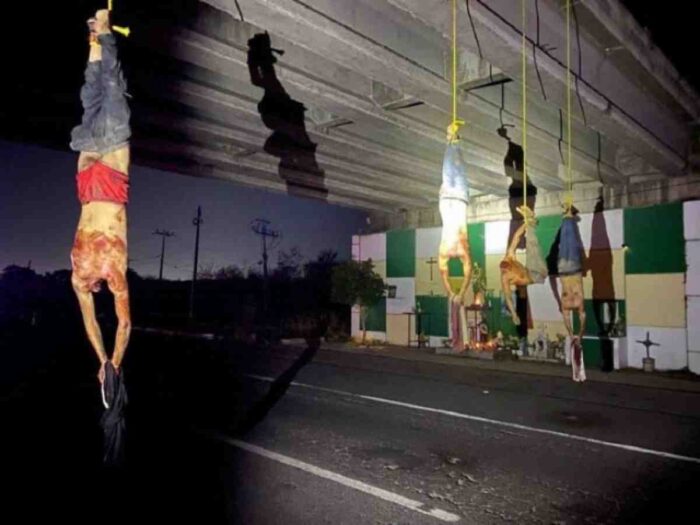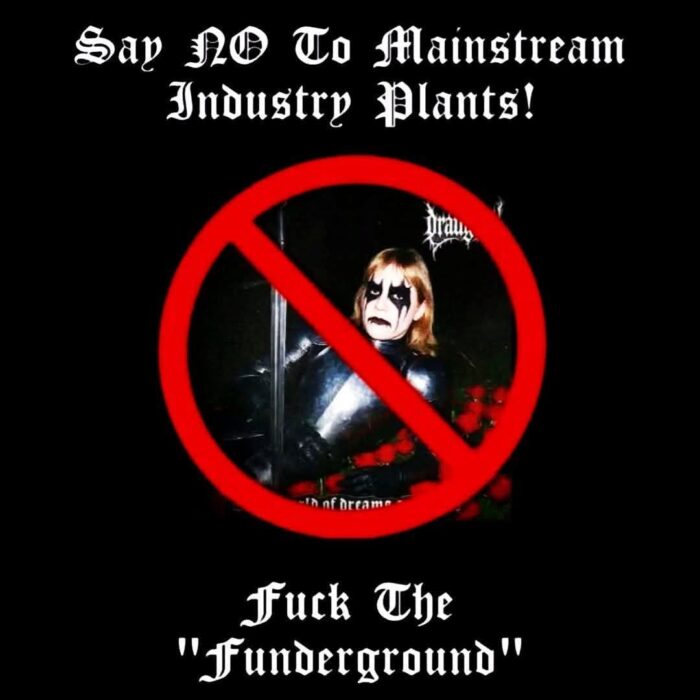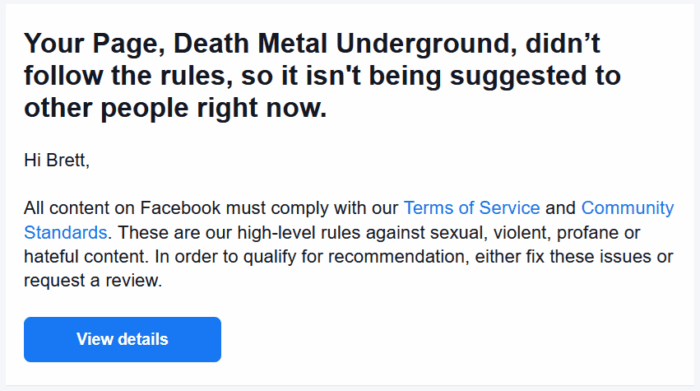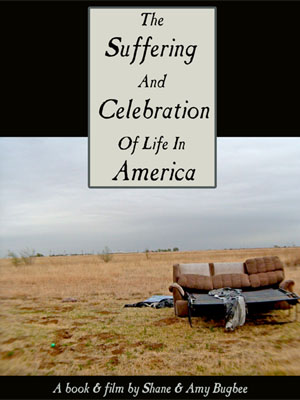 Shane Bugbee and Amy Bugbee, who wrote The Suffering and Celebration of Life in America which featured interviews with Possessed, Averse Sefira and Gene Hoglan, answered our interview request with a flotilla of good information.
Shane Bugbee and Amy Bugbee, who wrote The Suffering and Celebration of Life in America which featured interviews with Possessed, Averse Sefira and Gene Hoglan, answered our interview request with a flotilla of good information.
These are the two writer-artist-metalheads who hopped into a decade-old Suburban with $200 and drove across America, spending a year touring the USA to figure out what Americans actually believe and where the soul of America rests.
During the process, they interviewed Possessed’s Jeff Becerra twice, Gene Hoglan, Ian Mackaye, Averse Sefira and many other underground figures who have featured prominently in the evolution of metal.
They also caught the spirit of metal in their critique of society and its tendency toward herdlike conformity, along with a refusal to join in. The resulting adventures were insightful and humorous, and you can read them in the book. But for now, the interview…
I’m here in Tampa, Florida questioning Shane Bugbee and Amy Bugbee about their new book, The Suffering and Celebration of Life in America. We are most definitely not firing shotguns, drinking whisky and listening to old Sarcofago bootlegs. Let’s see what they say when I whip out this list of questions written on an old receipt for ammonium nitrate and fuel oil…
AMY: Hi Brett, thank you for asking questions, glad to answer them, thanks so much!
When did you first become a metalhead? Why? I assume it would have been easier to get into AOR or country.
AMY: I have been a metalhead since I was little girl, and when I think back to where it began, I must have been in 3rd Grade. I had a sister 5 years older than me, and we grew up in a working class community on the industrial South Side of Chicago. We would pool our allowance ($3 a week each) and buy an album — AC/DC, Black Sabbath, Led Zeppelin, Judas Priest. The first time I heard Black Sabbath I was hooked. I can remember when Ozzy left Sabbath, I remember when Bon Scott died, I was 9 or 10 and I was devastated.
We had a record store in downtown Hammond, Indiana that we walked to almost every Saturday, called Hegewisch Records. They used to put album art on black t-shirts with hundreds of bands, I started wearing them in 4th grade. That place was like a secret world, I loved it. (The owner was murdered in 1991 – shot five times, never solved – but that’s how it is where I grew up!)
SHANE: my uncle was digging on sabbath, led zeppelin, ac/dc & zz top when I was a wee lad, so, that was a start… the first 45 I was given as a gift was elvis, the first full record, kiss destroyer and, the first cassette, van halen/fair warning… seems like my uncle liking hard rock bands helped to influence and guide me, that and the clan-ish war beat of heavy metal/hard rock that naturally attracted me…. I think the metalhead is a lost culture/clan that is split up through kings or natural catastrophe… we find each other through the music… my earliest metal memories are listening to the radio in a chicago suburb and wanting the first ozzy solo record so bad I said out loud I’d sell my soul to the devil for it… I wound up with a copy the next week… kiss on TV, I can’t recall exactly, but maybe when kiss appeared on mainstream, prime time tv, I think is was CBS who aired phantom of the park… buying a bootleg led zeppelin record from the classified ads in rolling stone – these are some of my early metal memories.
What were your favorite metal bands? What made you like these more than others?
AMY: As I mentioned I really loved Black Sabbath, and a lot of what I would now call “Hard Rock” bands. At 14, I was introduced to Metallica, Slayer, and that whole second generation of metal through a crew of friends I’d begun running with. I thought Metallica, Motorhead, and all those bands were great, but my real loves were Venom and Slayer. I remember running to the record store the day Slayer’s Hell Awaits came out. I was working my first job at a Dairy Queen in Harvey IL, and I got myself a decent stereo and bought albums with most of my paychecks that summer. I would immediately record the albums onto cassette tapes and I took them everywhere. I was the person everyone turned to for music after a while.
So much great music then — Mercyful Fate and King Diamond, Exodus’ Bonded by Blood. I am lyrically inclined, so Venom was something I was really drawn to. Today, there is a lot of really good and a ton of really bad metal out there, as always probably.
Sad to say, since I lost my entire music collection I have been less inclined to buy music, and listen instead to a lot of internet metal radio and even our local community station.
SHANE: it’s impossible for me to make a list of favorites as they will move and change, sometimes daily… here’s a quick retrospective and some of those I’ve loved through-out the years…
- van halen
- ozzy ozbourne
- deicide
- obituary
- slayer
- ac/dc
- black sabbath
- king diamond
- destroyer 666
- dark funeral
- electric wizard
- sepultura w/max only.
that’s a hard thing for me to put a reason on taste… I’d say the overall thing that sticks with me through all art is aggression and honesty… be it a painting or a song. there is of course my influences as a child, influence from peers.
seems like my uncle liking hard rock bands helped to influence and guide me, that and the clan-ish war beat of heavy metal/hard rock that naturally attracted me…. I think the metalhead is a lost culture/clan that is split up through kings or natural catastrophe… we find each other through the music…
Shane, I remember that you were involved with the Milwaukee Metalfest. I don’t think metal fans today remember how important that event was, but it was like the industry conference for metal fans (not the metal industry, which didn’t exist). How did you get involved, and what did you take away from the experience?
SHANE:
the metalfest was quite the gathering point, wasn’t it. boy, those were the days… I got involved because I had a zine (Naked Aggression) and was trying to sell jack koshick (metal fest founder) some ads, I told him I could help with sales and wanted to sell vendors tables and publish a program book I could sell ads in… I felt they could profit off of the show without all the ticket buys (pay to play) they made low end, un-signed bands take part in… I really hated the pay-to-play deal and wanted to help make the fest better… it was cool, I made enough money to live off of for six months a year but the metal fest only crumbled due to too many pay-to-plays and the fest became less and less about the music and all about the money… funny thing is, I quit because so many brothers in metal came up to me during my final metal fest, they would yell and scream about the shitty pay to play bands and the schedule, telling me they’d never play the show again, so I quit thinking I’d give up the 6 months worth of payment working on the metal fest and I’d start a fest for all those bands that would never play the metal fest again… I was going to do it for the ‘scene’ !!! hehehe, yea, right… the scene!!! the second we put together the expo of the extreme, the scene turned its back on our show and each and every band that said they’d NEVER play the metal fest, RAN to play the metal fest, and if you told the promoter of the metal fest that you were going to play my show it became the fastest way for a band to not only get booked, you’d also get paid and a decent stage time on the metal fest stage… so, the biggest take away was the ‘scene’ or ‘art’ within the metal community had gone away – it became a business and was striving to be an above ground and exploitable job vs. a pure expression… I should have just continued to play along, fighting against it all was personally satisfying, but it didn’t help my bottom line and I lost a lot of friends over that war of principles.
the black metal underground gave me hope for a bit, and on the net I’ve re-found the metal underground, so it didn’t die, it just stays in the cave.
For “The Suffering and Celebration of Life in America,” which has one of the most metal titles of any book I’ve read recently, you interviewed a number of underground metal legends, including Jeff Becerra, Gene Hoglan and Averse Sefira. How did you manage to meet so many fascinating people? Why do you think they granted interviews to you as opposed to the rest of the metal press?
SHANE: we simply asked trusted sources, friends of friends… a lot of luck went into whomever we eventually spoke to… traveling with no $$$ meant that we would find work, then a place to crash, then a gas station, then the highway. if we were lucky an interview we planned from the beginning of the trip might fit in…
as far as the interviews with us VS the metal press??? I don’t see us as metal press, just press. The metal press talks metal, so they are by their nature, predictable… and about the business of their industry… me, us, our trip was something different and exciting and I think top tiered metal heads are always looking for excitement vs. business.
AMY: I think, as with everyone we spoke to on our road trip, we were coming at things from a unique angle or perspective. We were not asking about their latest record or whatever BS they hear all the time so they were interested in being represented in a different way maybe.
I had interviewed Jeff Becerra on my defunct radio show some time back, and Gene Hoglan we’d met while living briefly in LA after our “shunning” – I’d invited him to a porn party via myspace, he said he wouldn’t know anyone, I said we just moved here so we don’t know anyone either, and he actually stopped by. Turns out a bunch of metal guys were at the party, I remember one guy falling to his knees to praise him when he walked in. Averse Sefira was a recommendation from a wise internet friend, as I was unfamiliar with their work before that. They turned out to be one of our favorite interviews.
Amy, you started out as a teenage metalhead and still proudly wear the Possessed shirts of your youth. How did your friends and family react to you being a metalhead? Can people cope with it these days at all?
AMY: To be honest, I have nothing left from my youth, my t-shirts and my record collection were lost while on the road, Jeff gave me that shirt when we stayed with him, but I get what you are saying…
As I said my sister got me into metal, our crowd was metal. We were the hardest of the hardcore in our town, but not for metal, more for drugs and mayhem and stuff. Our crew included druggies, thieves, pimps, prostitutes, guys who worked for the biker gangs and other criminal syndicates. Most of them are dead or in prison nowadays.
Ironically, the very friends who got us into Slayer and that whole wave of metal hated it when my sister and I started going to lots of shows in Chicago – to see bands like Possessed, Dark Angel, and even some hardcore bands. They said that was just noise — Silly boys, just could not handle we were more metal than they were! In reality, getting deeper into metal and spending less time with those people in Calumet City probably saved my life.
As far as family reaction, I was raised Atheist in a Catholic community so we were always outside of society. I’ve never been baptized, read the bible, or attended church. My parents were logic minded, they were spiritual but not Christian. I was told I was going to hell for attending public school and biting my nails by the Catholic kids on my block. In public school, when everyone was preparing to do communion or whatever they do in second grade, and kids realized I didn’t attend any of the local churches, I was called a devil and a witch, and they stopped talking to me, so I was never part of society. If you always live outside what is “the Norm” it has no meaning to you.
You two launched yourself out on the road with what, an old Suburban and $200? Were you afraid? I think most of us are afraid to leave the morphine drip of our paychecks and grocery stores. What motivated you to do this?
SHANE: when I look back I can see a lot of feelings… but I cannot feel those feelings. I’m not above being afraid, just don’t think of it that way… this was a reverberation, a creative reaction to an aggressive action against my family… so our expression to that aggressive action was survival and revenge all rolled up into one. so, the motivation was to stay sponsored as I had been with my newspapers and creative enterprises, while at the same time finding creative ways to enact revenge on the town of ely, but responsible revenge… I wanted the world to know about ely… I wanted the world to think about ely. not the town, but the mindlessness of the collective mind. I also felt it was time our art became understood, the stuff amy & I had been doing was so-misunderstood it was easy for the other side to paint us into a corner… my friendship with Dr. LaVey, the obscene books I published, the angry, pro violent art… for me, the nucleus of what I did has always politics, I have always seen stuff like my association with the church of satan to be an artistic and political movement and NOT a belief or a religion, more of a political expression… everything I express is based in politics… so one of the major reasons I wanted to do the trip was to let our politics/art speak for themselves and, not in such an abstract way as art sometimes expresses itself, I wanted our misunderstood expression to be communicated through visceral, real life, in the flesh action… so, it was time to hit the streets and meet the enemy.
AMY: We were terrified! But even more terrifying was the thought of canceling after months of planning, and being failures. We already felt we had so much to prove, we’d just been shunned and run out of a town, we were sleeping on my in-laws basement floor. When our sponsor pulled out and left us every reason to cancel, the alternative of having to eat crow, and find shitty jobs, and get a shitty apartment, and be stuck in some awful suburb of Chicago while the in-laws gave us the “I told ya so” speech daily was more than we could deal with, if we died on the road that was just as well. Better to go and die than stay and be failures.
Plus, when we were tipped off Adam Curry was going to take our idea and replace us with some of his contract podcasters as soon as we signed the contract (he had it in the fine print thinking we would not read it), there was no way we were going to let that false metal loser do that to us.
I understand that you were involved in a community, and were accepted and valued there, until people found out that you’d written — not worshiped, written about — the dark lord himself. They ran you out of town. Oprah wants to know “How do you feel about that?” but I want to know how you think this reflects on the nature of religion and dogma. Does it make us into monsters, or does it take one monster to turn a town against people?
SHANE: one of the main questions we asked of americans was “is there a difference between religion and spirituality?”
I felt strongly that it was the religious, not the spiritual who were the flock of blind and ignorant followers who are ultimately soldiers for corporate buffoonery… maybe a simple question, big deal, the years leading up to our road trip and this question I assumed any and all religious/spiritual believers were harmful to the future of human evolution, but at that point in my life I had met a handful of decent christians and others who were spiritual and unshakable in their beliefs and it was always these kind of spiritual folks who would have no problem hanging out with amy & myself, but the religious… beyond fearful, so afraid, they didn’t want to know.
so, our trip and the “is there a difference between religion and spirituality” question, along with all of the great answers confirmed my thoughts that religion is for weak minded scared little sheep, but, now I was able to add to my philosophy a compassionate thought about the spiritual, those who find and define a personal spirituality are thoughtful, they think, they work at it, they listen to others, the exact opposite of the closed off religious. as far as the human animal being a monster, well, the human can be scary, and if enough of us humans get together with an idea to control and manipulate people we can certainly create a monster or two for use as a tool of fear, but you need blind followers to give a monster life, so I’d say it takes a manmade monster and a whole lot of ignorant followers to turn a town against people.
AMY: It did not matter that we’d moved to the northern Minnesota wilderness because my father, who had retired up there some 15 years earlier, had had a stroke. Everyone in my family wanted to put him in a home or stick him in their basement, and I knew either choice would kill him, the only chance he had to recover was to be where he loved to be – in his home near Ely, MN. We gave up a lot to be there for him, we had just sold our house and were planning to move to NYC. This was the total opposite of that plan, but Shane made it work, he came up with a gourmet Blueberry soda pop and soon we were bringing in semi-trucks of it. It was really taking off.
Then, we decided it was weird a tourist town had not updated their visitor’s website in over three years, so we made our own, and that expanded to doing a podcast — the first one in the Northwoods, we started an arts paper. We didn’t make a dime off that website or paper, we did it to help.
We donated a pallet of soda to help the hockey team keep their ice maintained all season, and we were trying to save the school’s art program with an event for the movie A Christmas Story when the shunning began.
None of those good deeds mattered to anyone. Those good Christians cared not for our deeds that they could see right in front of them, or the positive relationships we had built in the community. They decided we were bad based on online work we’d done, websites in the virtual world, interviews Shane had done, some a decade old.
Even the so-called artists and thinking people of the community turned on us because they did not want the finger pointed at them.
It all came down to an anonymous letter that three or four people were behind, it called us devil worshippers. Because of it, stores pulled our soda from shelves, I was unhired from a new job, not because people even thought what was in the letter was true really, but because they did not want to go against the grain.
We really did not have a chance. The worst part of all was leaving my dad.
It has had terrible long lasting effects for us. I’ve still lost jobs over this stuff, it really follows you, it scares people, and it makes us seem paranoid.
A few years back I read that more than half of the kids in “gifted programs” listen to metal, and maybe that is just it, even metal it seeks its own level, there is metal for the not-too-bright, and there is metal for the kids who are too smart for the world they were born into. I think many kids who are super smart are pretty cynical about things, and if you are sensitive or compassionate the suffering of the world is crushing.
That being said, why do you think it is that metal is fascinated with evil, Satan, murder, war, sodomy, disease, power, control and torture? It sounds like the musings of either an abused child or a child abuser. Is there any connection to how our society chooses to organize itself?
SHANE: our tribe/clan may have been broken up by war or natural catastrophe, maybe metal is a base and visceral sound for the underclass tribe/clan we all seem to belong. … or maybe metal is the sound of war and those who are attracted to metal are either natural warriors or those individuals that have stepped into a mind for war based on circumstances beyond their control… I’ve always seen metal as a life force, a clannish beat that has once again brought us together by empowering the used and abused. so maybe you have a point, I’m not sure, for me, metal is in my earliest memories… it seemed natural to me and I was abused as a child and as I recall, the early metal shows did seem to be a place where all the abused and lost met up… either that or the punk rock shows, though, it’s always seemed to me punks have very different politics vs. metalheads so, maybe it’s not the abuse, or the warmth of a parent, or the lack of attention from a teacher that drove us to leather, spikes and denim, maybe it was our natural politics of might makes right/survival of the fittest that has brought us together.
AMY: That is just who we are as metal heads, we are the people from the wrong side of the tracks, we’ve seen too much too soon, and no one in society holds out any hope for us. We are the throwaways.
Bands sing about what they know and where they are from, and they sing to kids who know the same. If death and destruction is what you experience, that is what you will be attracted to musically.
I never liked pop music, it just meant nothing to me. AC/DC’s ‘Problem Child’, now THAT I could relate to. A happy kid from a nice community is not gonna want to listen to Venom.
A few years back I read that more than half of the kids in “gifted programs” listen to metal, and maybe that is just it, even metal it seeks its own level, there is metal for the not-too-bright, and there is metal for the kids who are too smart for the world they were born into. I think many kids who are super smart are pretty cynical about things, and if you are sensitive or compassionate the suffering of the world is crushing. You got to get that out somehow, and aggressive music is as good a way as any.
I started going to a lot of metal and hardcore shows when I was in high school in the mid to late 1980s, the scene then was really small, and everyone knew everyone. There was a kinship there because we were all messed up. In those days, if you fell in the pit someone always picked you up. There was a unity in the metal scene, it felt safe. I can remember the most outrageous hardcore people being worried if we would get home okay, driving an hour out of their way to take me home, or offering a place to stay.
Sure there are exceptions to every rule, but I would say most metal heads are smarter than their opportunities in life provide for, and that creates frustration. Not only are they smart, but they are sensitive, maybe more sensitive than most, kind of like how tribes can pick out the kids who will become the shaman, they have that added ability to feel the world around them, I think metal heads are a lot like that. Perhaps that is where the connection comes from.
If you had any advice for teenage metalheads, based on your successes and failures (we’ve all had them), what would it be?
SHANE: dream, but do the work to manifest the dream.
through out my time producing and publishing, a lot of folks will meet me and it seems they look me up and down and try to understand how I, a person they automatically discounted could, let’s say, own his own soda company or, publish books, and the big difference between me and them, I work long hours at it, I’m totally dedicated, and when the project no longer becomes fun, I continue to struggle through it and I work even harder.
as far as my failures go, they all stem from childhood issues that took me far too long to figure out, so I would advise the metal youth to understand themselves and the reasons they are angry and then work on re-directing those energies into something creative or at the very least productive… depression is for the food of the world, don’t be food.
AMY: The best advice Shane and I got on the road – “You don’t have to be what people say you are”. That came from an 88 year old lady who really knew about the world. It may be the best advice ever.
The world is vast, and the teen years matter so little once you get out of them. If your life sucks read a lot, learn how to manage your money, and plan your escape. The kids I knew who had no goals are mostly dead.
Don’t let yourself be trapped in stagnation from fear, we are all scared. Standing still is way scarier than moving forward if you are on a tightrope, just keep moving forward.
And, you know that saying “You got to have something to fall back on if ___ doesn’t work out?” It’s a lie. If you have something to fall back on you will. Give your true passion 100% then if it fails, and you have exhausted all possibilities, that is when you work on plan B.
9 Comments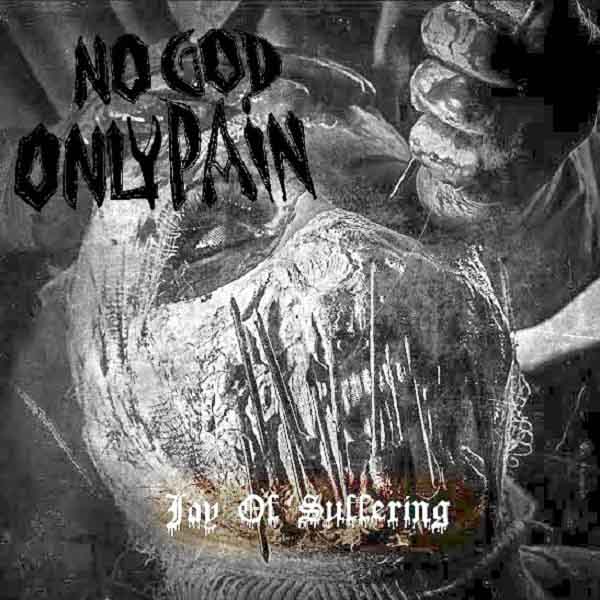
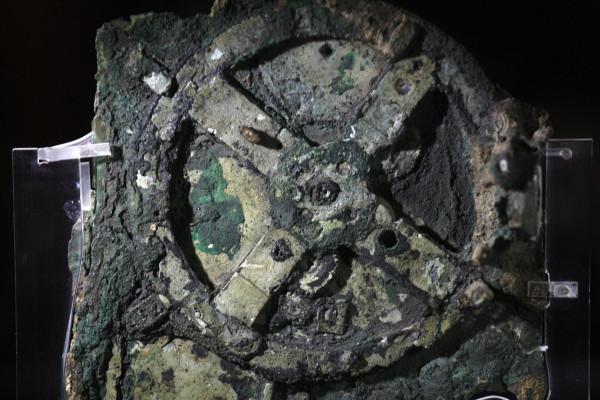
 Shane Bugbee and Amy Bugbee, who wrote
Shane Bugbee and Amy Bugbee, who wrote 